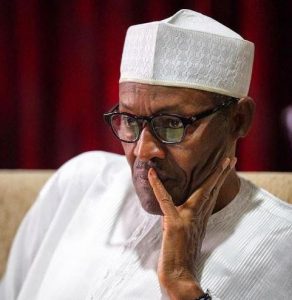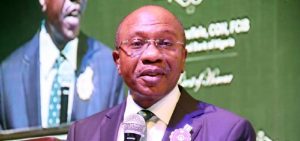
Bloomberg: Nigeria’s central bank will increase dollar sales to support the economy and bolster the naira after leaving its key interest rate at a record high.
“Interventions will be more vigorous and intense,” Governor Godwin Emefiele told reporters in the capital, Abuja, after announcing the Monetary Policy Committee’s decision to keep the benchmark rate at 14 percent. “Loosening monetary policy would exacerbate inflationary pressure” and reverse the naira’s gains on the parallel market, he said.
The central bank has kept borrowing costs steady since July to prop up the naira that came under pressure after oil prices and output, Nigeria’s biggest export, crashed in mid-2014, leading to dollar shortages and pushing the inflation rate to the highest level in more than 11 years. The decline in the crude production crippled West Africa’s largest economy, which shrank 1.6 percent in 2016, the first full-year contraction in a quarter of a century.
The naira has stabilized at about 380 per dollar for portfolio investors and on the black market, while the interbank rate is about 315. While the regulator removed a 197-199 naira per dollar peg in June, it continued intervening with sales of the greenback and blocked importers of certain products from accessing foreign currency on the official market.
The central bank “will not determine” the level at which it wants the naira’s various exchange rates to converge, Emefiele said. “We would prefer a convergence that goes significantly southward rather than northward.”
Falling reserves
Nigeria’s foreign-exchange reserves have declined by 1 percent since reaching an almost two-year high of $31 billion on May 4. The central bank has sold more than $4 billion foreign currency since late February through the spot and forward markets. Dwindling oil revenues has put the regulator under pressure to shore up its reserves, Emefiele said.
“The CBN’s step-up in its foreign-exchange interventions has had some positive results,” Lagos-based FBN Quest said in an emailed note before the rates decision. “We question how far the CBN can expand its interventions without the depletion of reserves.”
While foreign-currency liquidity has improved after the central bank introduced the window for portfolio investors, dollar shortages persist. The weakening of the naira kept inflation above the government’s target of 6 percent to 9 percent even as the rate fell for three consecutive months to 17.2 percent in April.
The MPC’s decision was in line with the forecasts of all but one of 22 economists in a Bloomberg survey. One predicted a 100 basis-point cut.
Gross domestic product contracted 0.5 percent in the first quarter from a year earlier, after shrinking a revised 1.7 percent in the three months through December, according to data released by the National Bureau of Statistics earlier on Tuesday.
A reduction in the monetary policy rate “will not help the economy because it will jeopardize stability,” Sewa Wusu, head of research and investment advisory at SCM Capital Ltd. in Lagos, said by phone. “It will reduce portfolio inflows which will impede growth.”
The International Monetary Fund forecasts Nigeria’s economy will expand 0.8 percent this year as the oil industry recovers.




